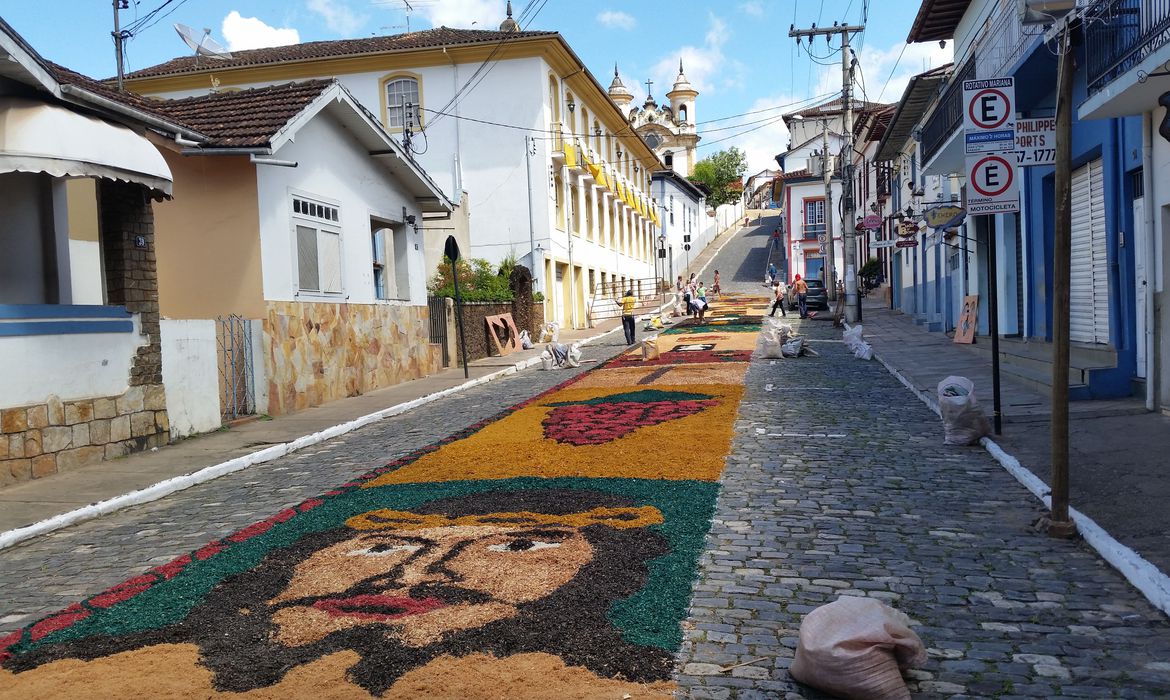RIO DE JANEIRO, BRAZIL – For the second time, the Easter holiday will take place in the middle of the new coronavirus pandemic. But now, with Brazil breaking successive records for the number of cases and deaths due to Covid-19, the changes will be very significant in traditional ceremonies.

In most places, events with the potential to cause crowds are prohibited, in a measure against the circulation of the new coronavirus, against a backdrop of exhausted health care structure and waiting lines for beds in intensive care units.
For the second time in 276 years, for example, the Fireworks’ Procession was canceled in the city of Goiás, which usually brings together thousands of people during Easter. In the celebration, dozens of farricocos – hooded Roman soldiers – walk through the historic town center streets carrying torches and participating in reenactments. On-site, the city hall will broadcast recordings of previous rites.
Another bicentennial tradition, the devotional street carpets in Ouro Preto will be made this year only by small groups of local faithful. Other people will not be allowed to participate in the making of the hundreds of meters of flower, sawdust, and coffee powder carpets, an activity that used to gather thousands of residents and tourists. The masses will also be broadcast over the internet.
Passion of Christ
The most traditional stagings of the Passion of Christ have also been subjected to restrictions throughout the country.
In São Paulo, the celebration in Santana do Parnaíba, 40 kilometers (25 miles) from the capital, was canceled. Before the pandemic, the town was home to the staging of the play “Drama of the Passion”, which thousands of believers attended. This year, churches, temples, and other religious buildings can stay open, but only for individual manifestations of faith.
In Pernambuco, another show that was canceled for the second consecutive year was the Nova Jerusalém show, which stages the Passion of Christ in what is known as the largest open-air theater in the world, with 100,000 square meters, in the city of Brejo da Madre de Deus, in the western sertão of Pernambuco.
According to the organizers, the show has taken place for more than 50 years, and in that time, it has been seen by more than 4 million spectators. In 2019, when the last staging took place, the average attendance was 6,000 people daily over an eight-day season.
Another canceled ceremony with a history of large religious mobilization was the staging of Morro da Capelinha’s Via Crucis in Planaltina, in the Federal District, 40 km from Brasilia. The event also held a dramatization of Christ’s death and resurrection. In 2019, the last year the event was held, it gathered 15,000 faithful who climbed the steep hill.
North to South
In cities with strong Catholic mobilization, such as Belém, processions that usually gather thousands of devotees, such as that of the Dead Lord, should not occur. In the capital of Pará, more traditional masses, such as the Sermão das Sete Palavras (Sermon of the Seven Words), will be celebrated without the public.
In Gramado, in Rio Grande do Sul, the entire annual Easter program has been transferred to the internet to transmit children’s plays and recitals. Before the pandemic, the city in the Serra Gaúcha that is a well-known center of chocolate production, always received a large number of tourists at this time of year. Even with restrictions, the city hall kept the city’s traditional illuminated decoration, with rabbits, eggs, and chocolates.
National Confederation of Brazilian Bishops
This year, the National Confederation of Brazilian Bishops (CNBB) produced a document with guidelines for parishes in the country about the holiday in the pandemic context. The document suggests avoiding processions. Palm Sunday had to be celebrated inside the churches, respecting the health guidelines of distance and hygiene, without distributing the traditional palm crosses and branches.
The Confirmation and First Communion Mass had (or will have) to be celebrated with a representation of pastors, ministers, and faithful. The confederation added as an orientation a prayer for those suffering from the Covid-19 pandemic.
Source: Agencia Brasil

